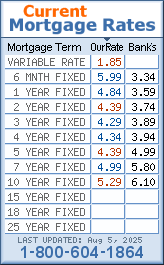|
| | Canadian Real Estate / Mortgage Glossary| Results found: 1009 | Page: 1 of 51 |
Abandonment
A disclaimer of ownership by the trustee or debtor in property deemed burdensome or inconsequential. Once property has been "abandoned," it is no longer the property of the estate, and creditors can seek to recover their money.
|
Abstract of Judgment
A court document that states how much the loser of a lawsuit owes, and which creates a lien, or a claim on property, when filed with the county recorder where the property is owned.
|
Abstract of Title
A written history of all the transactions that bear on the title to a specific piece of land. An abstract of title covers the time from when the property was first sold to the present. Used by the title company to produce a title binder.
|
Acceleration Clause
The section of a mortgage document that allows the lender to speed up the payment date in the event of a default, making the entire principal amount due.
|
Acceptance
A property seller's formal, written approval of a buyer's offer.
|
Account Agreement
An agreement that you sign and which lists your rights and responsibilities and the bank's rights and responsibilities for the bank account.
|
Accounting Method
The method used by a business or individual to keep records. Most individuals and small businesses use the cash method, although businesses that maintain inventory are required to use the accrual method. See also "Accrual Method" or "Cash Method."
|
Accounts Payable
Money owed by a business for goods and services received.
|
Accounts Receivable
Money owed to a business by purchasers of goods and/or services.
|
Accrual Method
Business accounting in which you report income in the year you earned it and expenses in the year you incur them, rather than reporting income and expenses when you receive payment or when you pay the expenses. Under this method, if you built a deck and billed the client in December 1999, the amount you charged would be reported in 1999 as income even if you didn't get the payment until January 2000. If you own a business that maintains an inventory, you are required to use the accrual method.
|
Accrue
To come into possession or gather together an amount, often over a period of time.
|
Accrued Interest
Interest which has already been earned but has not yet been paid.
|
Acquiring Financial Institution
Merchants must maintain an account with an acquiring financial institution to receive credit for credit card transactions. Daily credit card totals are deposited into the merchant's account minus any fees.
|
Acquisition Fee
A fee charged by some leasing companies for originating the loan, just as mortgage lenders charge points as an origination fee. This fee is often not specified in a contract, but rolled into the capitalized cost when calculating monthly payments.
|
Acre
43,560 square feet. A plot of land 180 by 242 feet is one acre.
|
Acre Foot
The water or other material needed to cover an acre of land one foot deep. Equivalent to 325,851 gallons.
|
Act of God
When used in insurance policies, an event caused by natural forces such as hail, rain, tornado, lightning, floods or earthquakes, which results in damage to property.
|
Active Income
Active income, such as wages, tips and profits from your business that you materially participate in, and portfolio income, such as interest and dividends. Generally, you cannot offset active income with passive losses. See also "Non-passive Income."
|
Actual Age
The years since a structure was built. Differs from effective age.
|
Actual Cash Value
The amount of money that a broker or dealer has invested in the purchase and repair of a used vehicle.
|
|

|


